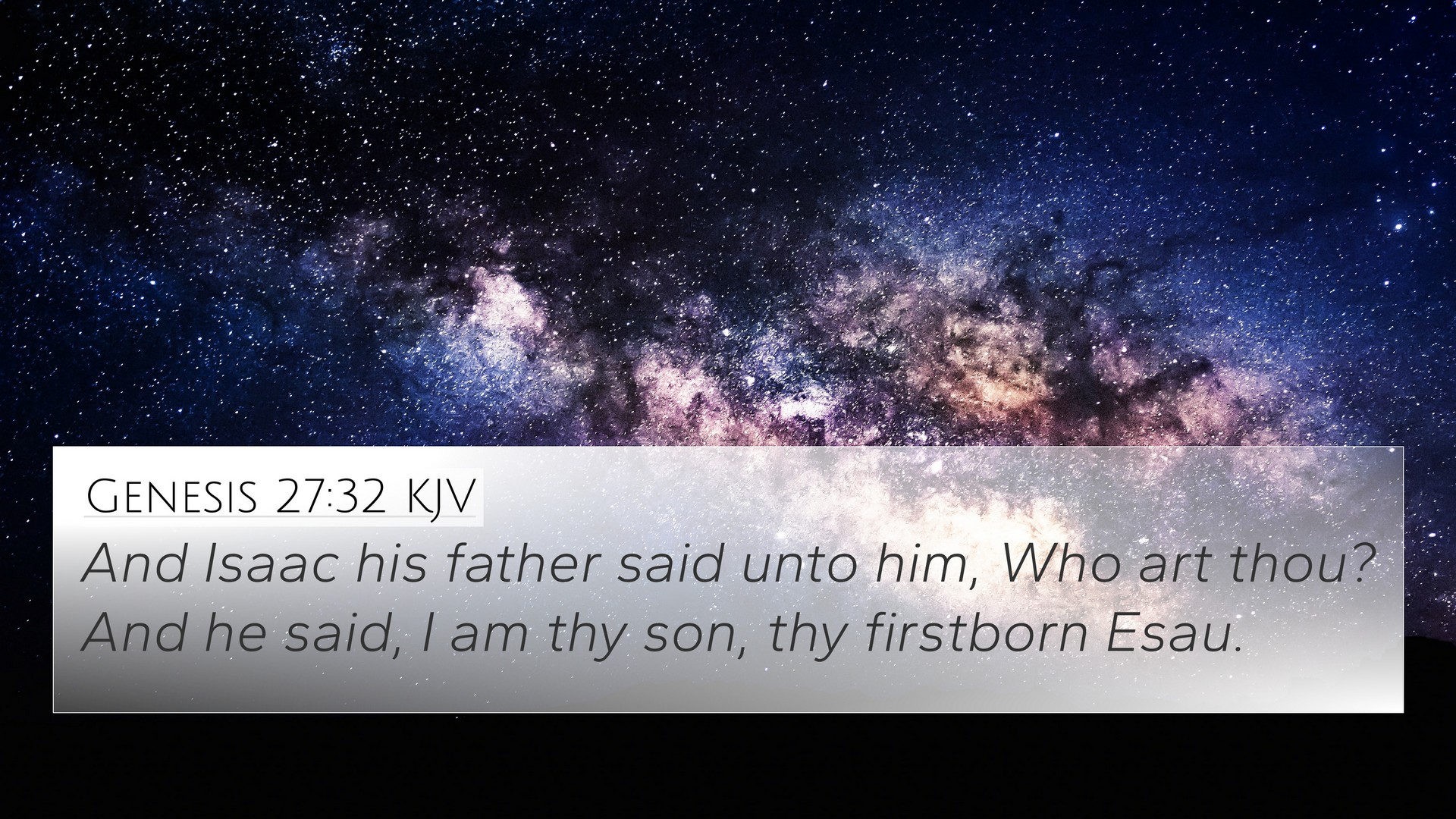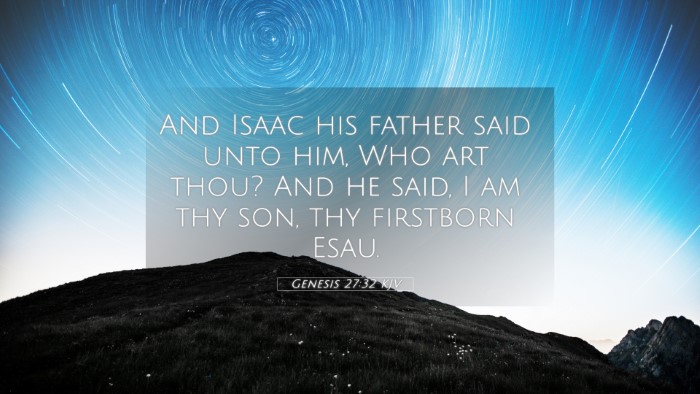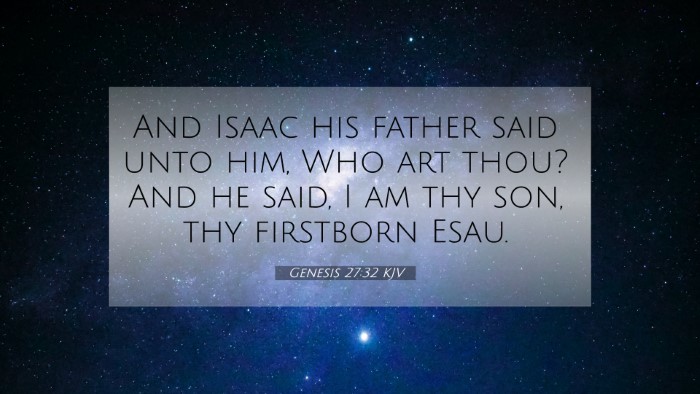Understanding Genesis 27:32
Genesis 27:32 presents a significant moment in the narrative of Isaac's blessing to his sons, which carries profound theological and ethical implications. This verse reads:
“And Isaac his father said unto him, Who art thou? And he said, I am thy son, thy firstborn, Esau.”
Summary of Genesis 27:32
In this story, Isaac, who is blind and old, has been deceived by his younger son Jacob, who disguises himself as his elder twin, Esau. This moment highlights themes of identity, deception, and familial discord, prompting readers to consider the broader implications of actions influenced by jealousy and favoritism.
Insights from Public Domain Commentaries
-
Matthew Henry: Henry notes the importance of identity, emphasizing that Jacob’s attempt to secure the blessing through deception reveals the complexities of human nature and familial dynamics. He suggests Isaac’s blind trust in his sense of hearing over sight demonstrates the often-blurry lines we navigate between truth and perception.
-
Albert Barnes: Barnes interprets Isaac’s question, “Who art thou?” as a pivotal moment reinforcing the themes of recognition and deception. He argues that this confusion serves as a reminder of the consequences of deceit, not merely for Jacob and Esau but for Isaac and Rebekah as well, urging readers to reflect on the repercussions of their actions.
-
Adam Clarke: Clarke reflects on the implications of Jacob’s claim as Esau, noting the moral complexity of this act. He highlights how the use of deceit leads to fragmentation within the family, foreshadowing future conflicts and struggles that lineage would face as a result of this pivotal moment.
Thematic Connections and Cross-References
Genesis 27:32 serves as a de facto study in the nature of blessings and inheritance within biblical narratives. It is enriched through connections with several other verses:
- Genesis 25:34: The significance of the birthright and its relation to the blessing, showcasing the initial transaction between Esau and Jacob.
- Genesis 27:1-4: The prior context of Isaac's desire to bless Esau, illustrating the forethought behind the blessing.
- Hebrews 12:16-17: New Testament reflections on Esau’s loss of the blessing and the implications of his choices.
- Romans 9:10-13: Paul discusses God’s sovereign choice in relation to Jacob and Esau, shedding light on divine purpose.
- Genesis 28:1-4: Jacob’s subsequent blessing from Isaac, which shapes his journey and the continuation of covenantal promises.
- Genesis 49:28: Isaac's words in blessing which affects future generations, linking back to Genesis 27:32.
- Matthew 24:51: Referencing the servant who deceives, drawing parallels in themes of readiness and authenticity.
Applying Cross-Referencing Techniques
This verse's exploration can benefit from various bible cross-reference guides that highlight connections between Old and New Testament themes. Through the practice of cross-referencing Biblical texts, readers can uncover deeper understanding, such as:
- Understanding the genealogical significance of blessings and their conditions.
- Exploring the dynamic between deception and the divine plans as seen in Genesis 50:20.
- Comparative analysis between God’s promises to the patriarchs and their fulfillment in future events (e.g., Exodus 3:6).
Conclusion
Genesis 27:32 offers layers of meaning that resonate throughout biblical scripture. Through tools like a Bible concordance and a comprehensive understanding of bible verse parallels, readers can delve into the rich tapestry of inter-Biblical dialogue this verse presents. As we forge connections and cross-reference across biblical texts, we discover not just the narrative of Jacob and Esau, but also a reflection on our choices and their echoing effects through time.
Further Study Suggestions
For those interested in cross-referencing Bible study methods, consider the following:
- Identify key themes in Genesis 27 and relate them to New Testament teachings.
- Engage with a bible cross-reference system to understand similarities between characters like Jacob and Jesus.
- Examine the moral lessons found in the interactions among Isaac, Rebekah, Jacob, and Esau.



